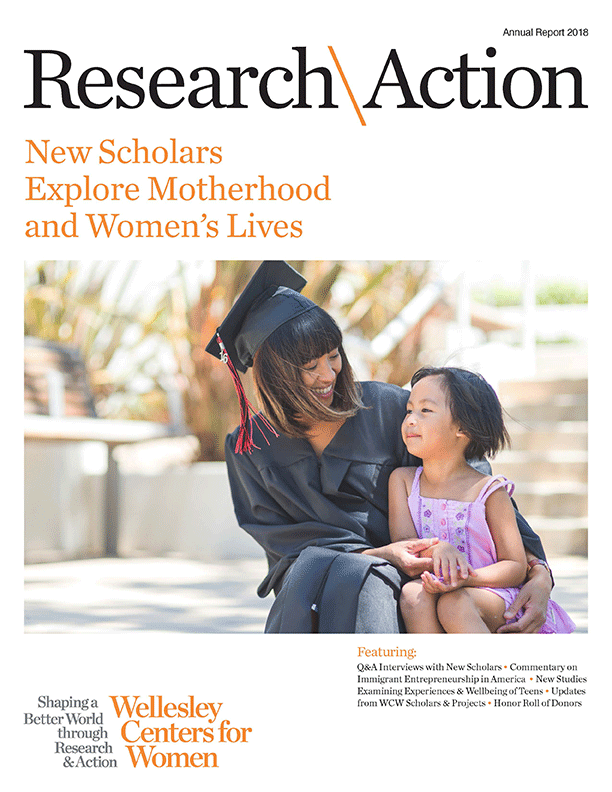Depression Prevention
Tracy Gladstone, Ph.D., associate director, senior research scientist, and director of the Robert S. and Grace W. Stone Primary Prevention Initiatives at the Wellesley Centers for Women (WCW), co-authored “Effect of Internet-Based Cognitive Behavioral Humanistic and Interpersonal Training vs. Internet-Based General Health Education on Adolescent Depression in Primary Care: A Randomized Clinical Trial.” Gladstone et al., 2018, published the study results in the Journal of American Medical Association (JAMA), highlighting the positive effects of the web-based CATCH-IT intervention on preventing depressive episodes among adolescents most at risk. Although 13 to 20 percent of American adolescents experience a depressive episode annually, no scalable primary care model for adolescent depression prevention is currently available. The multicenter, randomized clinical trial compared the CATCH-IT intervention—which consisted of depression-specific online learning modules, motivational interviews, and coaching—with a control intervention. The control intervention consisted of general health education and was similarly delivered through online learning modules. The article is available on the JAMA Network Open. 2018;1(7):e184278. doi:10.1001/jamanetworkopen.2018.4278
Gladstone et al., 2018, also co-authored “The Association Between Parental Depression and Child Psychosocial Intervention Outcomes: Directions for Future Research” included in a forthcoming issue of the Harvard Review of Psychiatry. Recent studies suggest that parental depressive symptoms may affect a child’s ability to benefit from interventions for anxiety and depression. This paper reviews the current literature, suggesting that when parents experience current depressive symptoms, children are less likely to benefit from psychosocial interventions for anxiety and depression. Opportunities for future research are discussed, including moderators and mechanisms of the association between parental depressive symptoms and child intervention outcomes. Gladstone et al., 2018, also co-authored “Cost-Effectiveness of Preventing Depression in At-Risk Adolescents: Post-Intervention and Two-Year Follow-up,” in Psychiatric Services. The study showed that cognitive-behavioral prevention produced significantly better outcomes than usual care and was particularly cost-effective for youth whose parents were not depressed at baseline. The authors note that depression prevention programs could improve adolescents’ heath at a reasonable cost and that services for parents may also be warranted.


